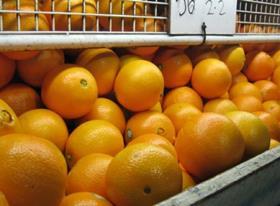
Judith Damiani, chief executive of Citrus Australia, remains hopeful the Indonesian government will lift import restrictions before the country’s citrus season begins in earnest in July.
Australian citrus exports to Indonesia reached A$14m (US$14.4m) last year, before Indonesia imposed strict import quotas in November, described by Damiani as “unreasonable” with the potential to “disrupt trade.”
Realising the importance of the market, an Australian delegation, including representatives from Citrus Australia, the Australian Horticulure Exporters Association and Horticulture Australia’s Office of Horticulture Market Access, travelled to Jakarta last week to meet with Indonesian officials.
While Damiani said negotiations remain precarious, the delegation received the impression the quotas would be abolished.
“The situation there seems to change by the day” Damiani said.
“However, from the feedback the delegation received first hand, the quota system will be lifted completely.
“We still await official translation from the Australian Government, so at the moment it’s cautious optimism, but things look like they are heading in the right direction.”
Damiani said the impending relaxation of the restrictions is part of an overhaul of Indonesia’s entire import system.
A new electronic database is set to be introduced in May, requiring importers to be officially registered.
“It’s been a long time coming,” Damiani said.
“It should help bring some organisation to the import industry in Indonesia and limit disruptions to trade in the future.”
Damiani said Indonesia remained one of Australia’s key citrus export markets.
“Indonesia is in our top five export markets, it's particularly important for Australian mandarins,” she explained
“Last year, mandarin exports were valued at close to A$9m (US$9.3m).
“For oranges, Australian navel exports, it's close to A$5m (US$5.1m).
“It’s a growing market and we are looking at ways to service its growing middle class.”



